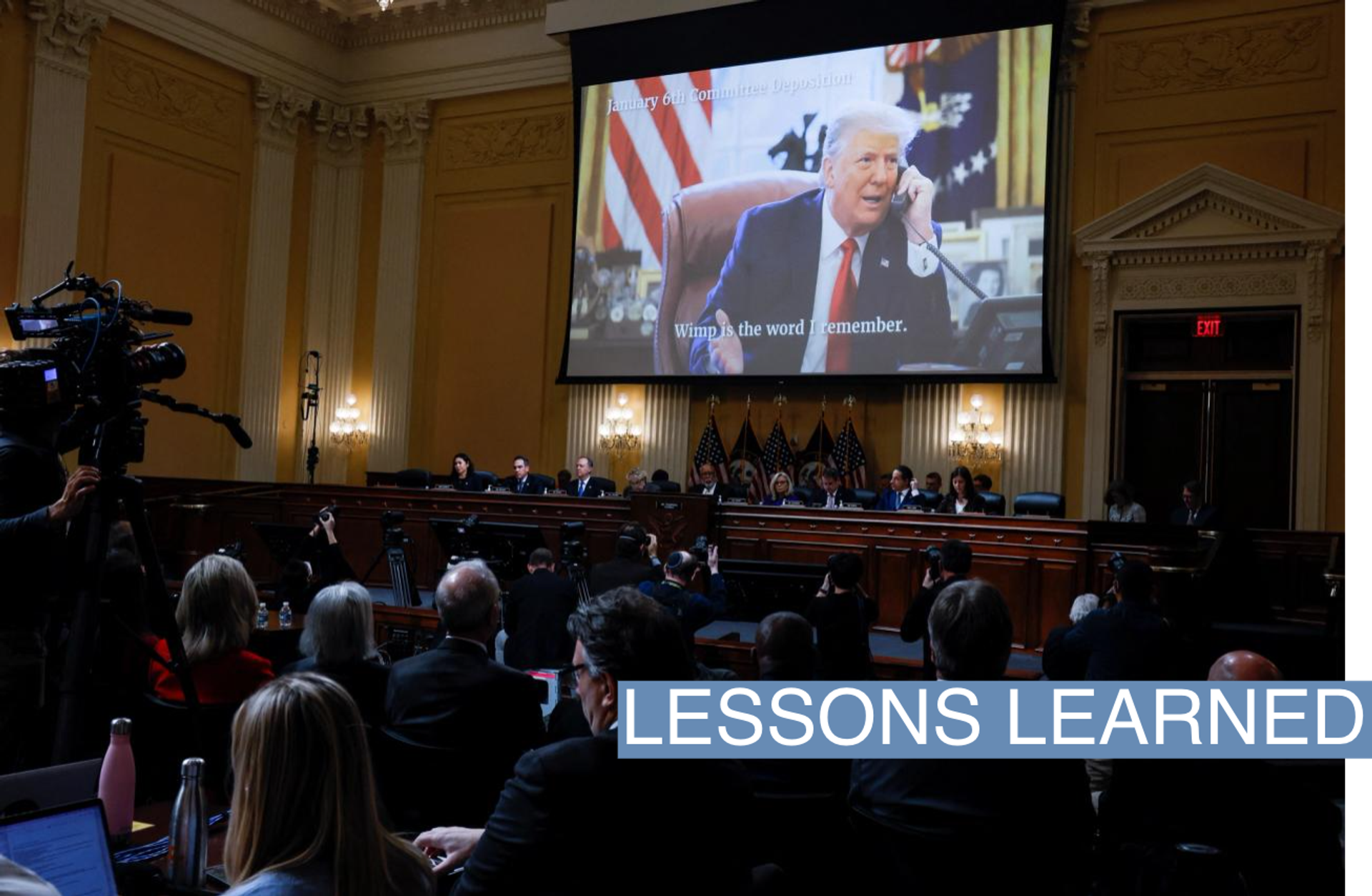The News

The Senate never got its own January 6th investigation to match the House’s after Mitch McConnell blocked a joint independent commission last year. But what they did do is arguably more significant: Craft a bipartisan bill — with McConnell’s support — that would respond point-by-point to the same coup attempt outlined by the House select committee.
“It was not just hypotheticals. We could actually look at the way the laws stand and, in view of what had happened, make a determination as to what more we need to do to provide some clarity,” Sen. Lisa Murkowski, R-Alaska, who helped negotiate the bill, told Semafor.
The legislation, spearheaded by Sens. Susan Collins, R-Maine and Joe Manchin, D-W. Va., is expected to pass this week as part of the omnibus bill. Here is how its most notable provisions line up with the House panel’s January 6th findings, which it laid out earlier this week in an executive summary. The committee is expected to release its full report on Thursday.
Taking the VP out of the process
The committee: One of the January 6th committee’s core allegations is that Trump “corruptly pressured Vice President Mike Pence to refuse to count electoral votes during Congress’s joint session on January 6th.” Trump’s plan involved pushing a fringe interpretation of the law in which Pence would assign himself extraordinary powers to discount states’ electoral votes.
The bill: The new Electoral Count Reform Act would clarify that the Vice President’s role is “ministerial” and that he or she would “have no power to solely determine, accept, reject, or otherwise adjudicate or resolve disputes over the proper list of electors.”
Making it harder for state officials to overturn results
The committee: The January 6th committee alleges that Trump “unlawfully pressured State officials and legislators to change the results of the election in their States,” including calling up Georgia Secretary of State Brad Raffensperger and urging him to “find” enough votes to reverse the outcome. Trump also publicly pushed legislatures in states he lost to “decertify” the results and choose their own slate of electors to compete with the ones already submitted by state officials.
The bill: State legislatures would be required to submit their electors ″in accordance with the laws of the State enacted prior to election day,” providing a stronger legal basis to challenge attempts to toss out results. It would also require Congress to only recognize electoral votes submitted by the governor, or a different single official if specified by state law, reducing the risk of competing elector slates. If the governor is the one going rogue, it would provide an expedited path for presidential candidates to challenge them in federal court.
Raising the bar to object to results in Congress
The committee: A key focus of the Stop The Steal movement in the run-up to January 6th was a planned vote in the House and Senate to object to the results, first called for by Sen. Josh Hawley, R-Mo (one hearing featured footage of Hawley fleeing the rioters to hammer the connection home).
The vote gave the January 6th organizers a political pressure point to target and raised fears about lawmakers’ safety, even among some who supported Hawley’s objection. The committee quoted Rep. Debbie Lesko, R-Ariz. on January 5th asking her colleagues for a security plan to deal with “Trump supporters who actually believe that we are going to overturn the election” and “are going to go nuts” after the vote failed.
The bill: Under current law, all it takes is a single Senator and House member to force a debate over counting electors. The bill would raise the threshold to one-fifth of each chamber, meaning Hawley would have had to recruit 19 colleagues to trigger an objection.
Joseph Zeballos-Roig contributed